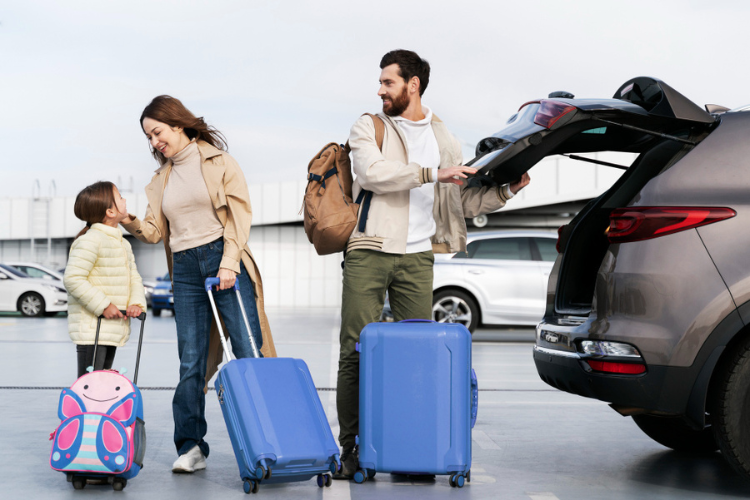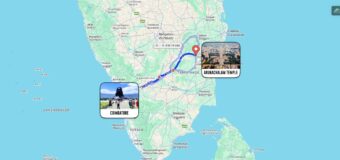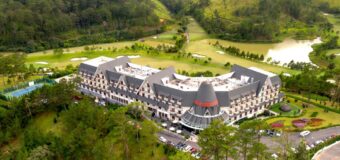You know, 10 years writing about places, travel guides, and tips is not a short span. Still, some days, I get to discuss topics that take me aback. There are areas that, as a human being, I cannot fit into the zones of right or wrong and white or black.
So, writing about “Trust regain for family travel post addiction” was demanding for me. As a teenager, I have seen how addiction can make everything haywire and how the family struggles. At the same time, I have seen the journey of rehabs and how the person finally fits into their family after that.
Yes, traveling is one of the best practices, along with family therapy, to help the person concerned resume their family life afresh. However, we, as a family, cannot always trust them even if they try the hardest.
But how to bridge the gap of trust and acceptance? This is what we will discuss in this Dream and Travel Guide. The methods I share for regaining trust while traveling as a family after addiction recovery are approved by Dr. Ryan Wakim, M.D. He is a psychiatrist and an expert in addiction-related disorders.
Why Is Trust Regain For Family Travel Crucial For Addiction Recovery?
Taking the discussion forward, I have seen my uncle suffering from severe addiction, and naturally, it affected his family. Broken promises! Pain! Confusion! Also, every time he was sober, there was tremendous guilt or shame.
So, even after recovery therapies and medication, getting along with the family and leading a normal life were difficult for him. Also, each time a fallout happens due to addiction problems, there is an emotional discord or distance in the family. So, family members are scared to trust the person again.
So, traveling, where you see the sunrise or sunset together, take a bath in the sea, or hike a mountain together, can be your moment of renewal and the process of trusting again.
The Healing Power Of Travel For Families In Recovery
When you travel with your family, you create a safe space.
- Reflection
- Communication
- Bonding
These are the activities that traveling stimulates. Furthermore, away from the daily routines, traveling allows you to share your emotions more openly.
Also, when you are in a new environment, the old triggers are fewer. Moreover, the calmness of nature or the excitement of exploring new places can help you overcome the emotional distance or suffocation you have been feeling so far.
Choosing The Right Type Of Trip For Family Healing
- Recovery
- Peace
- Rebuilding Connections
These should be the three main goals of a family vacation after recovering from addiction. So, quiet places such as nature retreats and cozy beaches are the best for vacations after addiction recovery.
Also, to help channelize the physical and emotional energy in the right direction, you can plan the following activities.
- Swimming
- Hiking
- Yoga
- Trekking
- Wildlife Safaris
Moreover, during these vacations, you must avoid the following high-trigger areas.
- Crowded Markets
- Places with Busy Nightlife
- Places that Remind of Old Habits
So, overall, you need to choose a place that takes you closer to healing and family bonding.
Communication And Boundaries On The Road
Open dialogues! No judgement! These are the keys to communication on the road.
Are you making travel plans? Share some responsibilities with the family member recovering from addiction. This is a small gesture showing that you are ready to trust them.
This will help them open up!
Also, be attentive to what the person has to share. A simple “I understand” can work wonders in communication.
Furthermore, you have to respect their “Me time” or allow them the privacy they deserve. You cannot keep a hawk eye on them, as it will only make them insecure.
Building New Memories To Replace Old Wounds
- Laugh together!
- Share stories!
- Celebrate little things!
- Share a smile!
Furthermore, capture these memories through photographs, gratitude journaling, and journaling. These are the things that make rebuilding connections and finding happiness again easier.
Managing Recovery Needs While Traveling
Start each day with quiet reflection or a few minutes of deep breathing. Meditation and mindfulness help reduce stress and keep focus on the present moment. If possible, attend local support meetings while on the road. Meeting others who understand your journey can bring comfort and motivation.
It’s also essential to prioritize self-care and balance. Travel can be tiring, so plan time to rest. Take breaks, eat well, and stay hydrated. Avoid burnout by keeping a simple structure — like setting regular meal times or quiet hours. These habits help everyone feel safe, calm, and in control, even far from home.
Turning Travel Experiences Into Long-Term Trust
The real magic of travel begins when the trip ends.
Start by reflecting together on your journey. Talk about the happy moments, the challenges, and the lessons learned along the way. Ask simple questions like, “What made you feel loved?” or “What did we learn about teamwork?” These talks help everyone see how far the family has come in healing after addiction.
Then, bring those travel lessons into everyday life. Create small family traditions that keep the spirit of connection alive — like monthly family outings, cooking together once a week, or practicing shared mindfulness or gratitude sessions. These routines remind everyone that healing doesn’t stop when the vacation ends; it grows stronger at home.
Consistency builds trust. When family members show up with honesty and kindness, day after day, trust slowly turns into confidence and peace.
Every trip can become a foundation for lifelong healing. The laughter, teamwork, and patience learned on the road can continue to guide the family’s recovery journey. With love, effort, and understanding, families can turn travel experiences into lasting trust, proving that every step taken together leads to hope, harmony, and a brighter future.
Overcoming Setbacks And Staying United
Healing takes time, and gaining trust after addiction recovery takes even more time. Some days are seamless. Other days can have challenges and conflicts. It’s OKAY, and we must agree to disagree.
In fact, when we create a space where everyone voices disagreements clearly. So, everyone is treated as an equal, and there is no insecurity.















